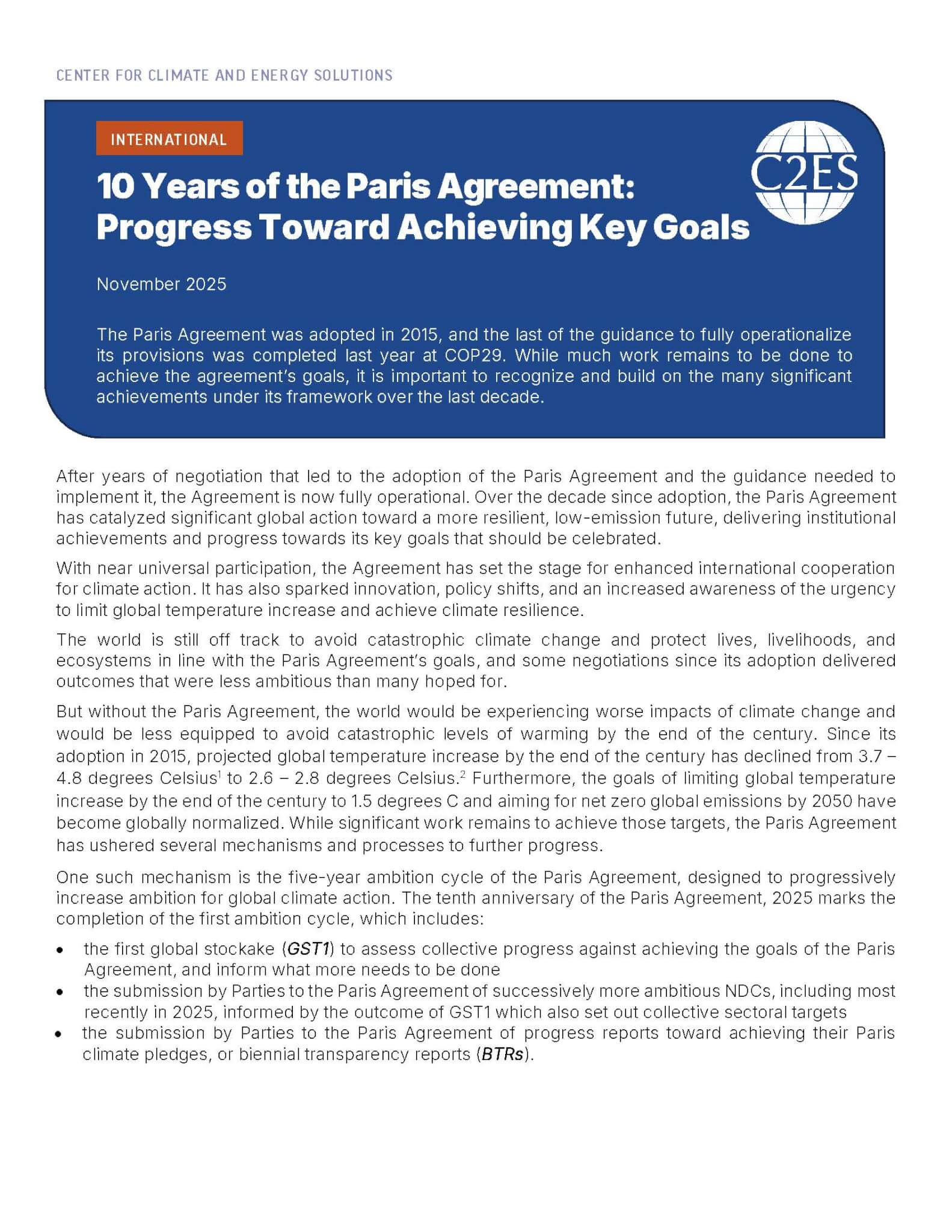This factsheet explores clean hydrogen, a critical commodity in major industrial and chemical processes, from petroleum refining to fertilizer production.
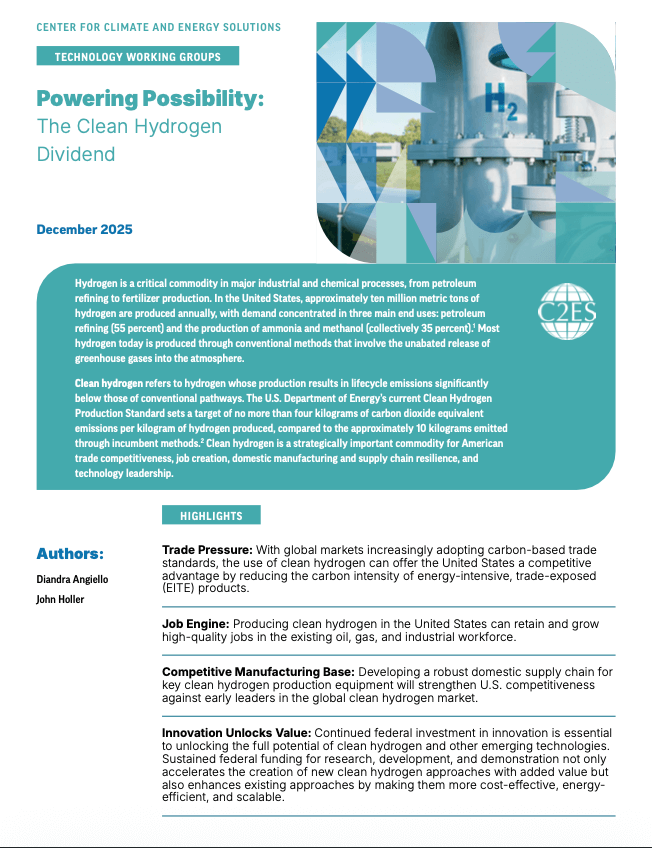

This factsheet explores clean hydrogen, a critical commodity in major industrial and chemical processes, from petroleum refining to fertilizer production.

This factsheet explores sustainable aviation fuel (SAF), a non-petroleum jet fuel certified for use in commercial and military aircraft.
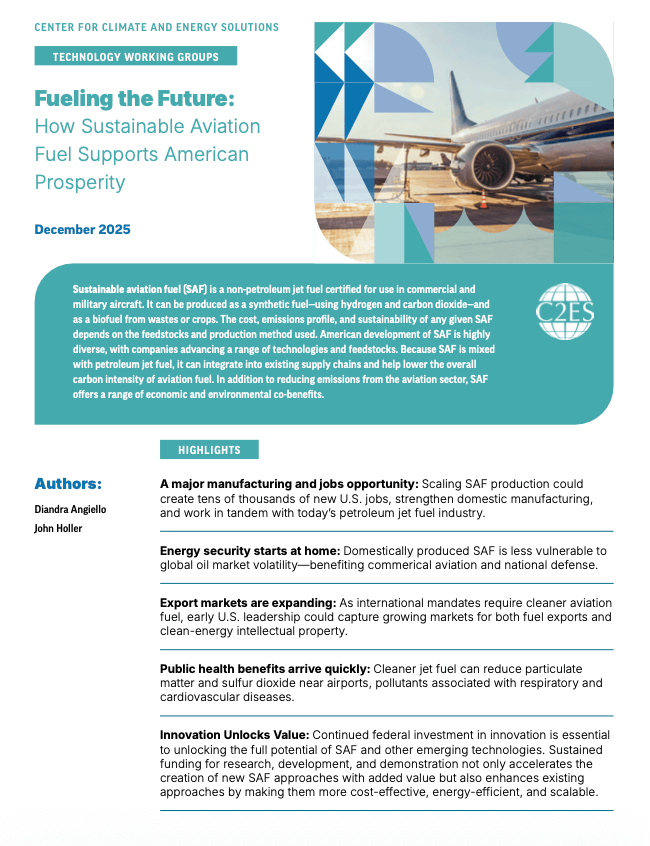
This factsheet explores engineered carbon removal (ECR), a form of carbon dioxide removal (CDR) that uses human-made technologies to capture carbon dioxide from ambient air or oceans.
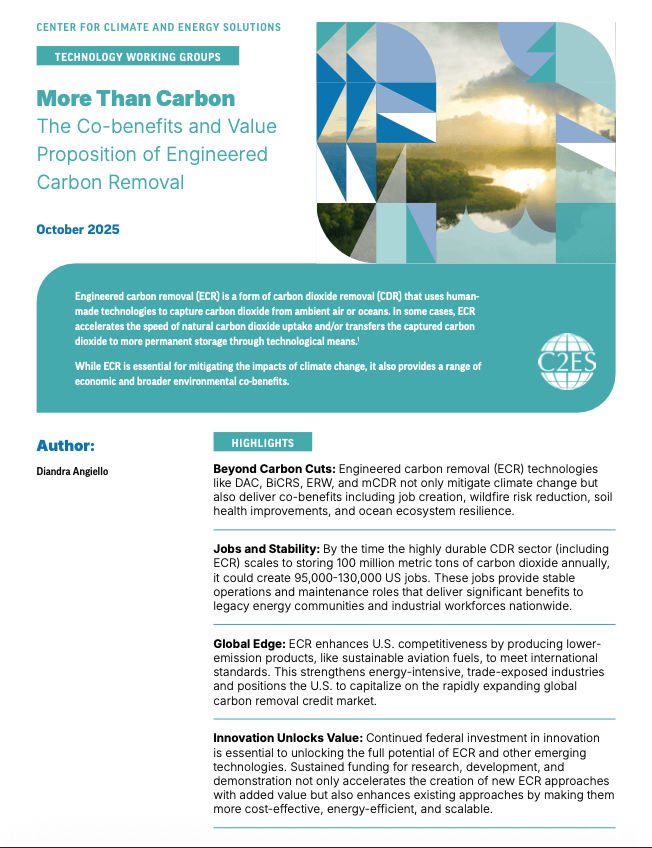
This factsheet explores long-duration energy storage (LDES), a storage technology that can supply energy—typically as electricity, and in some cases as heat—continuously for at least ten consecutive hours at full power.
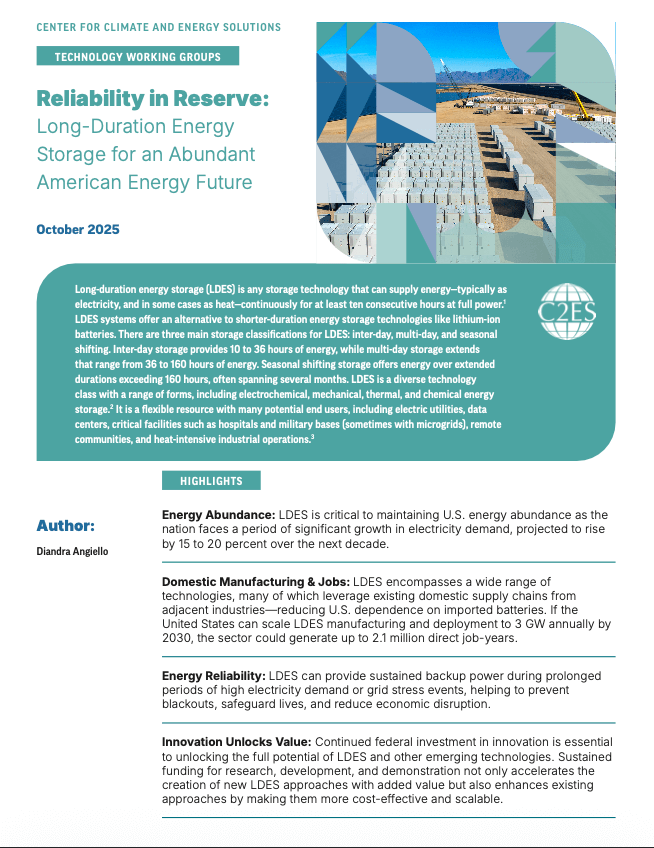
Parties are expected to decide on the progress assessment for the formulation and implementation of national adaptation plans (NAPs) at UN Framework Convention on Climate Change’s (UNFCCC) 30th Conference of Parties (COP30). The NAP process helps developing countries identify and address long-term climate adaptation needs. Progress on the formulation and implementation of NAPs has been […]
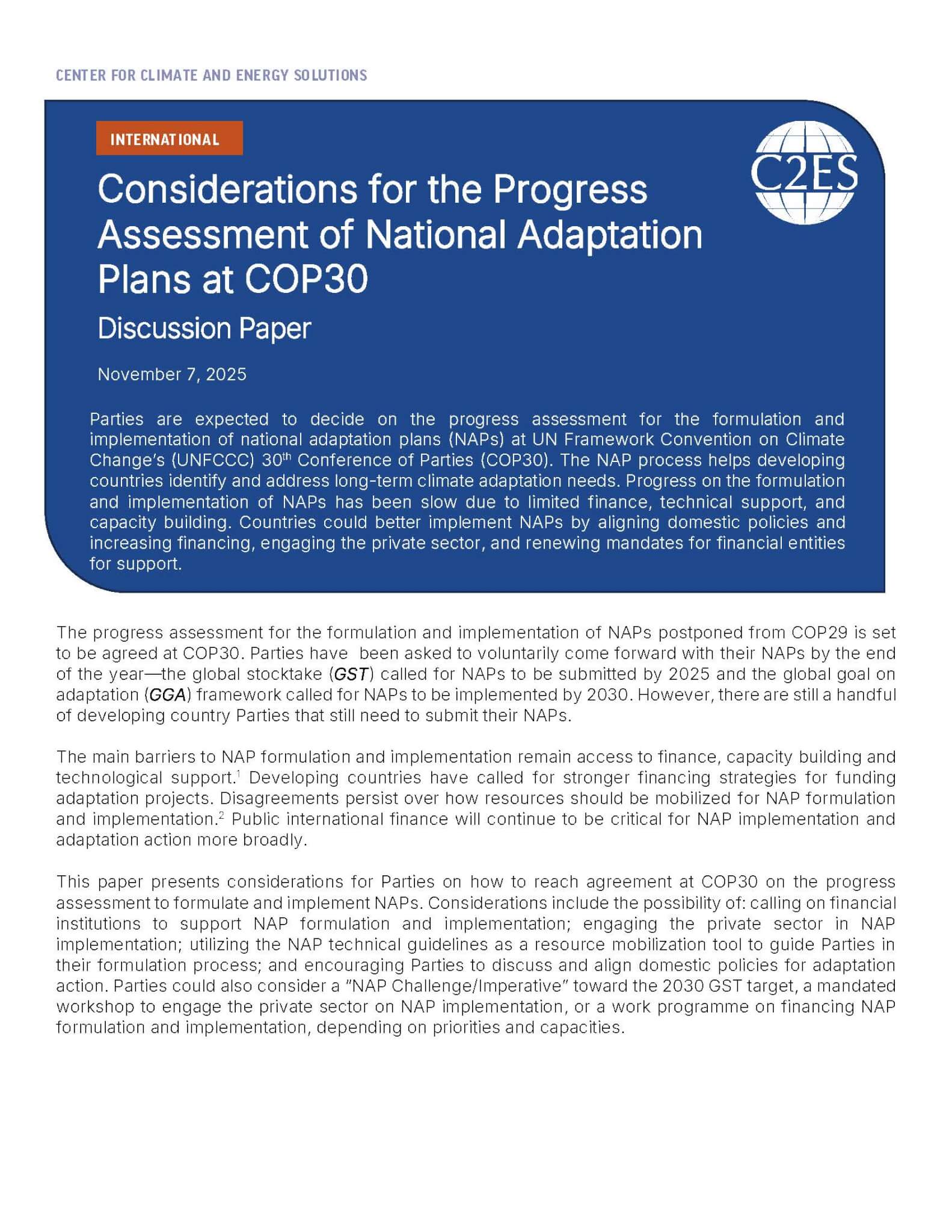
The substantial reduction of methane emissions globally by 2030 could have a major impact on global temperatures, equivalent to removing the emissions of all cars and trucks in the world. Achieving this GST1 outcome will be critical to meeting the Paris Agreement’s temperature target. Scaling finance for methane emissions reduction will play an essential role […]
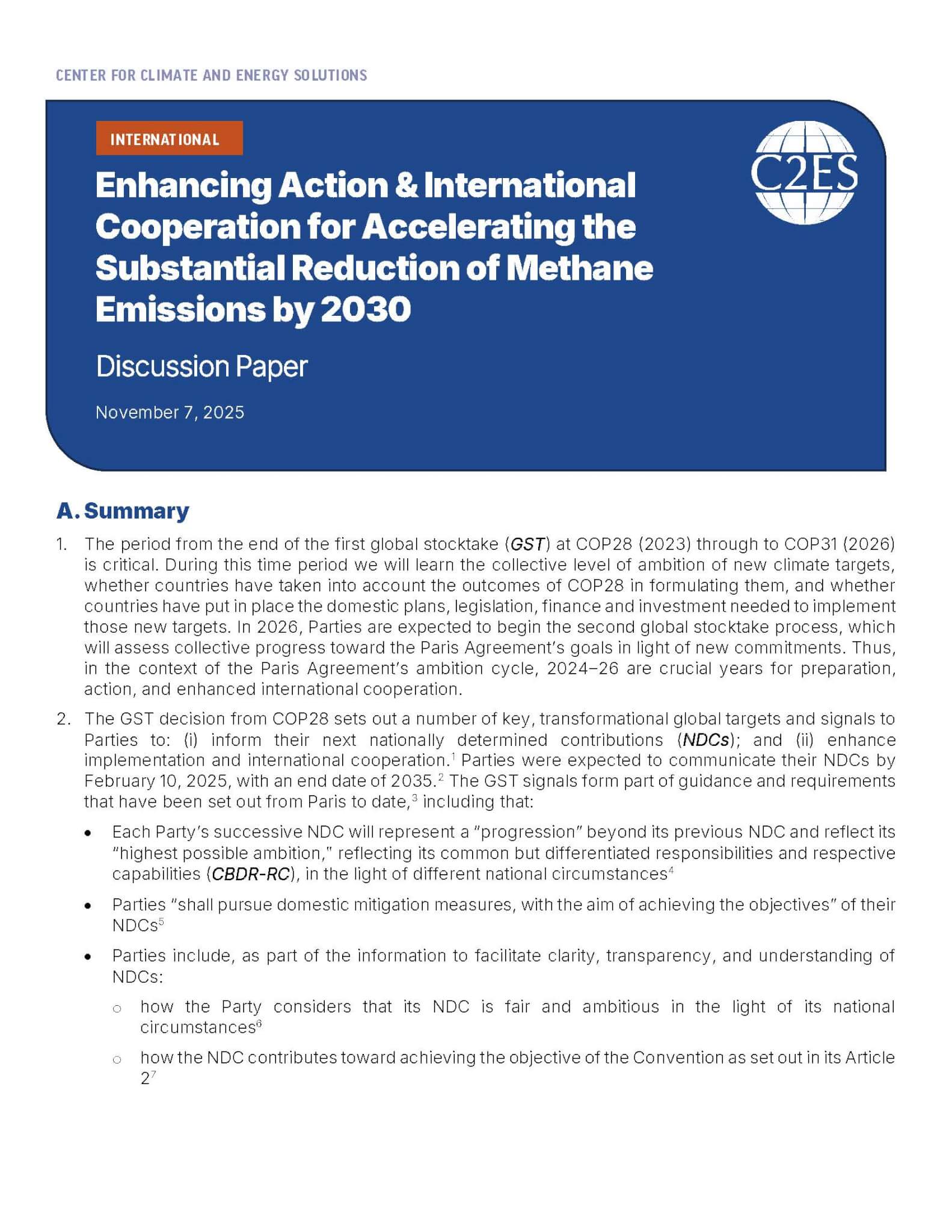
Coming one year after the guidance to fully operationalize the Paris Agreement was adopted and at the end of the first turn of the Paris ambition cycle, the 30th Conference of Parties (COP30) faces the challenge of navigating the transition to a greater focus on cooperation for implementation. The geopolitical context makes that task more […]
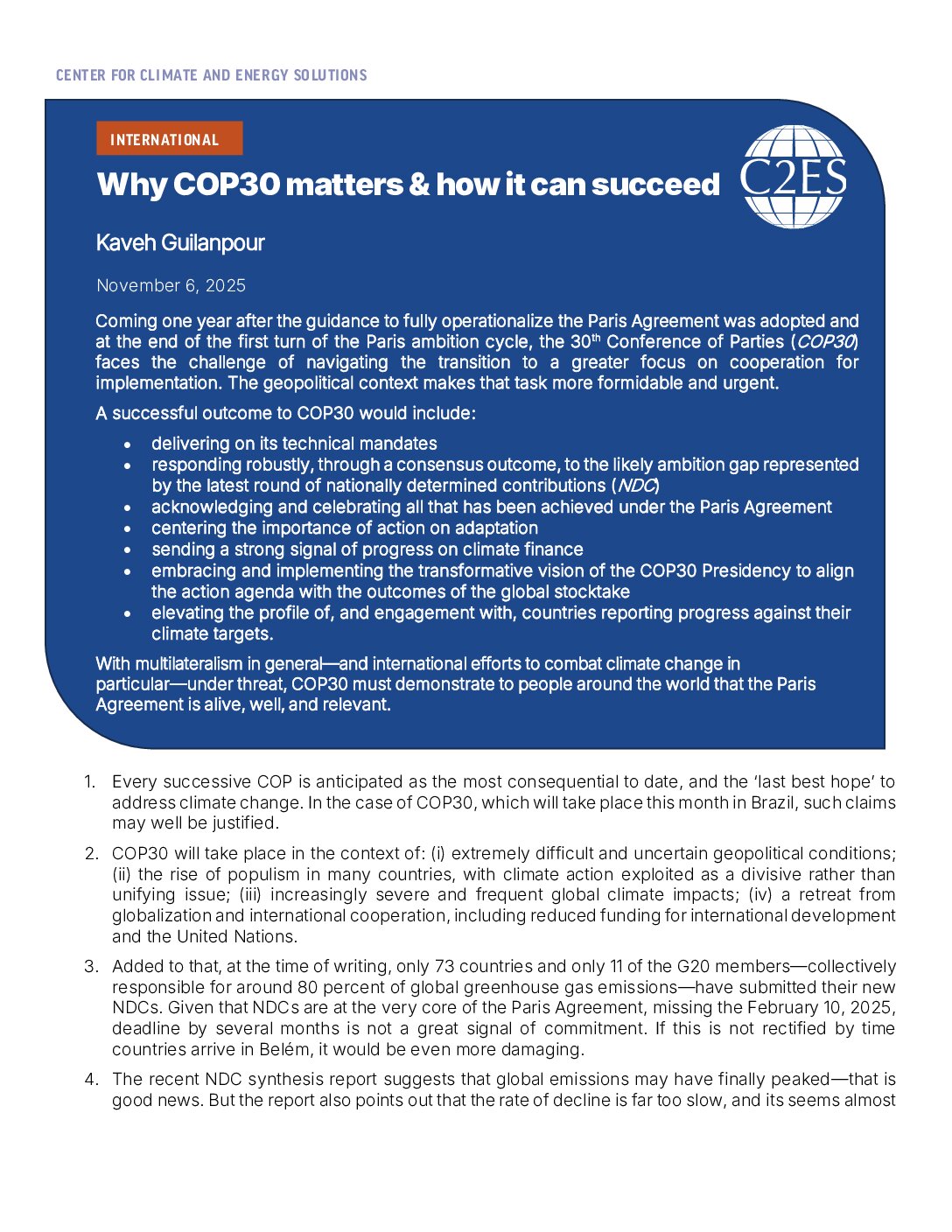
At COP30, the United Arab Emirates Just Transition Work Programme (JTWP) could lay out the elements of future work, including a framework for enhanced international cooperation and ambitious climate action for just transition. This paper explores the state of play of discussions and provides considerations and recommends possible outcomes for the JTWP. Through a well-designed […]
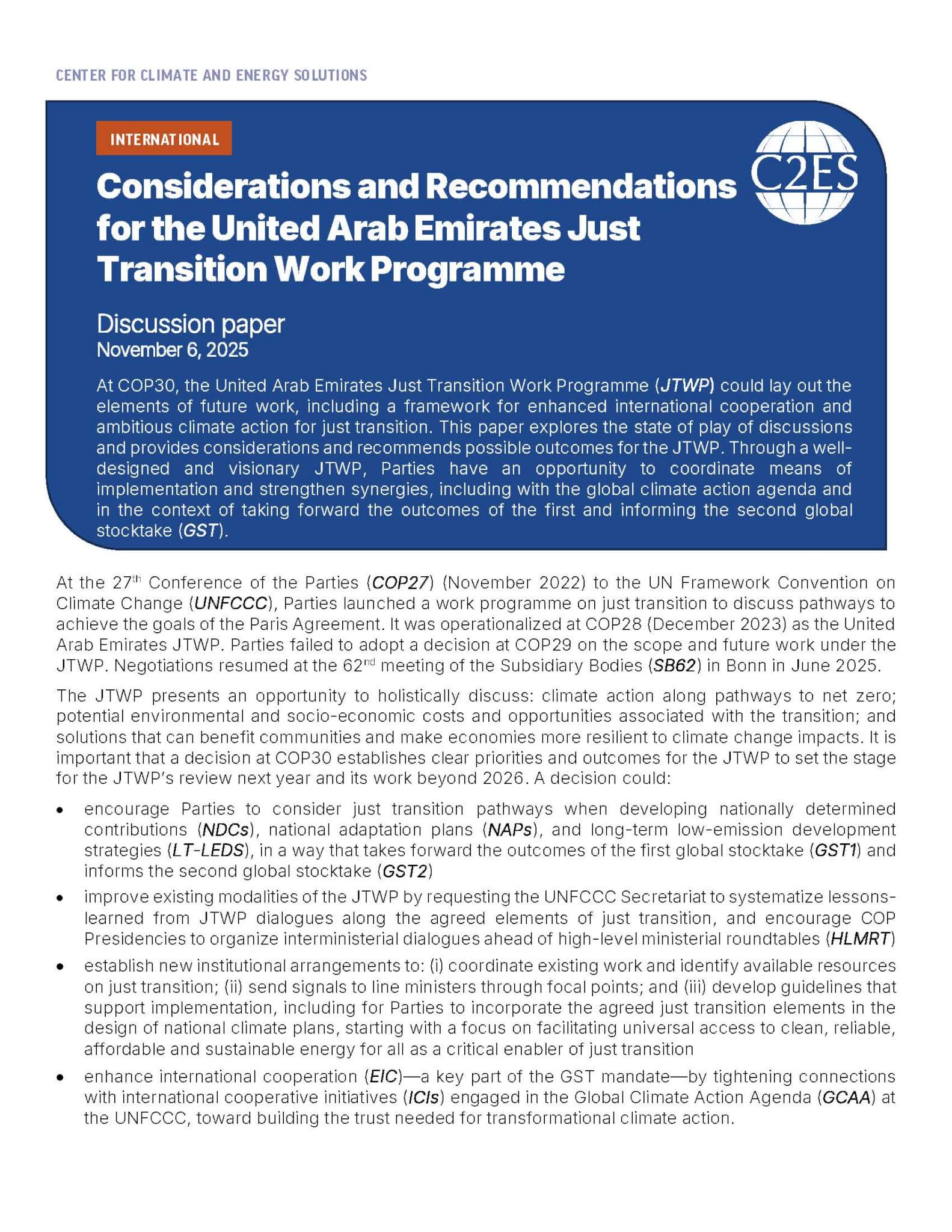
Comments of the Center for Climate and Energy Solutions on Reconsideration of the Greenhouse Gas Reporting Program (40 CFR Part 98 (September 16, 2025)) Docket ID EPA-HQ- OAR-2025-0186; FRL-12720-01-OAR. This document constitutes the comments of the Center for Climate and Energy Solutions (C2ES) on the proposed reconsideration of the Greenhouse Gas Reporting Program (GHGRP) published […]
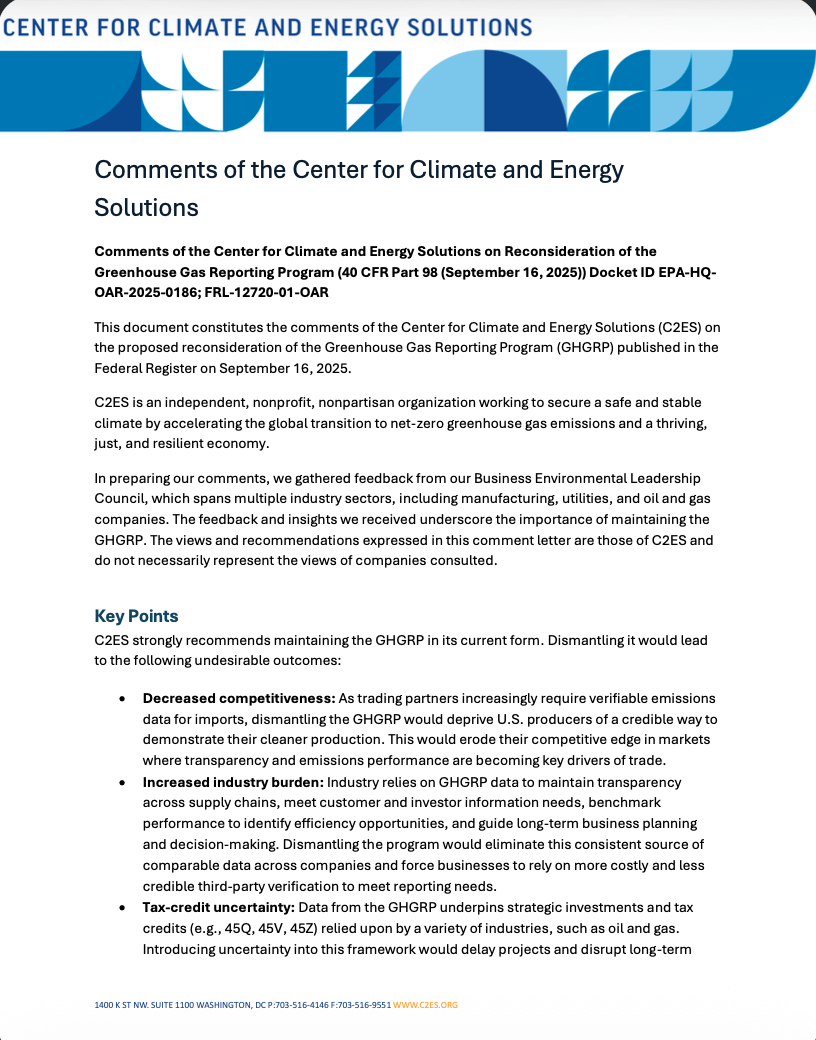
The Paris Agreement was adopted in 2015, and the last of the guidance to fully operationalize its provisions was completed last year at COP29. While much work remains to be done to achieve the agreement’s goals, it is important to recognize and build on the many significant achievements under its framework over the last decade.
